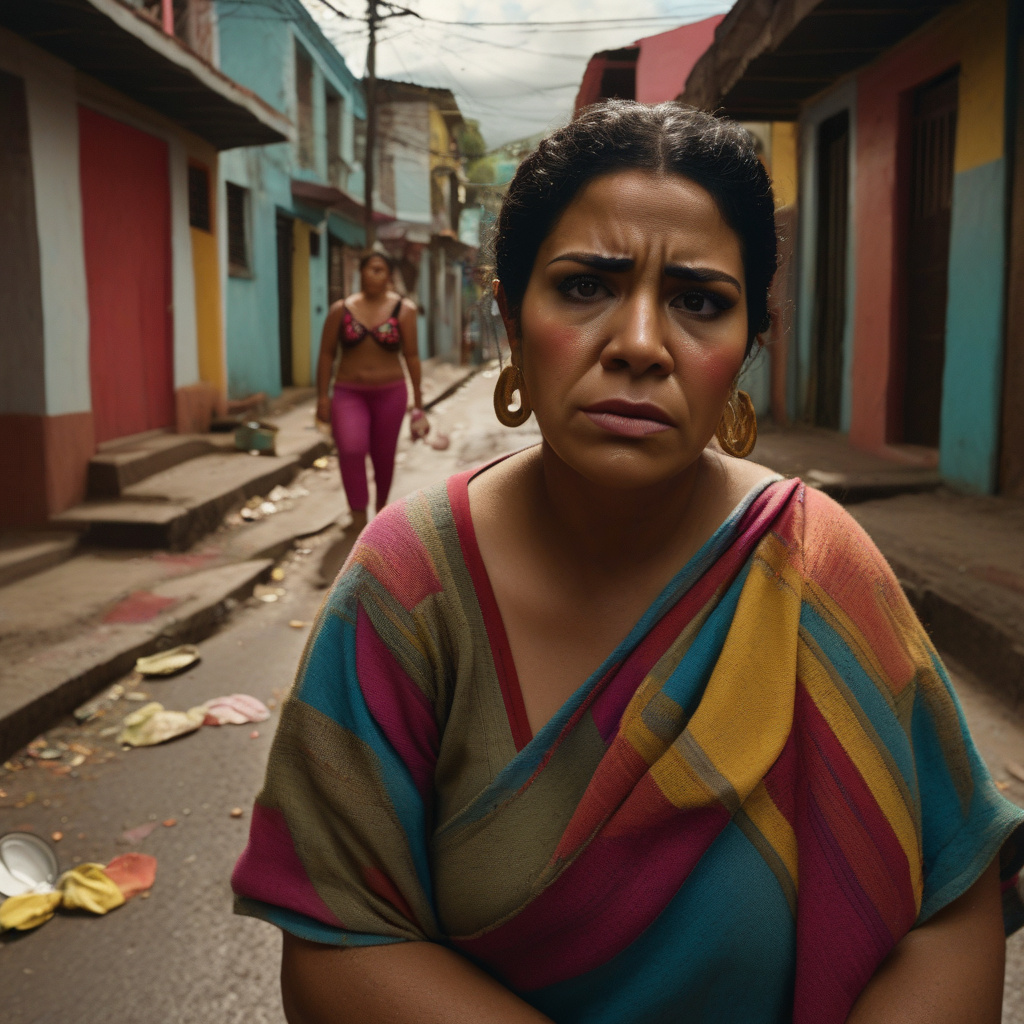Venezuelan Makeup Artist Returns Home, Describes Torture During El Salvador Detention
The harrowing tale of Andry Hernandez Romeo, a Venezuelan makeup artist, has sparked significant concern regarding the U.S. immigration tactics and alleged human rights abuses occurring in El Salvador’s mega-prison. Hernandez’s experience sheds light on the broader implications of U.S. immigration policies and the treatment of individuals seeking refuge in the United States.
Hernandez, like many others fleeing Venezuela, sought a better life and hoped to escape the dire economic conditions and political turmoil in his homeland. His journey led him to El Salvador, where he believed he might find a safe passage to the United States. However, what awaited him in this Central American nation was far from the refuge he sought.
Upon his arrival in El Salvador, Hernandez was detained by authorities amid a crackdown on migrants. He was held in a facility that has been described as a mega-prison, notorious for its overcrowded conditions and alleged human rights violations. During his time there, Hernandez reported experiencing severe mistreatment and torture, a reality that has raised alarms among human rights advocates and organizations.
Hernandez recounted instances of physical abuse and psychological torment that he endured while in detention. He described being subjected to beatings and inhumane treatment that left both physical and emotional scars. His story is not an isolated incident; rather, it is part of a disturbing trend highlighting the treatment of migrants in El Salvador and the broader implications of U.S. immigration policies that often rely on external countries to manage migration flows.
The U.S. has increasingly turned to Central American nations like El Salvador to handle the influx of migrants seeking asylum. In doing so, it has raised questions about the moral and ethical implications of such practices. Reports of atrocities within El Salvador’s mega-prison have surfaced, indicating a pattern of systemic abuse that has drawn the attention of human rights organizations. These reports detail overcrowded conditions, lack of medical care, and incidents of violence against detainees.
For many, including Hernandez, the prospect of seeking asylum in the U.S. has become fraught with danger. The fear of being detained and subjected to abuse in another country is a grim reality that many migrants face. The psychological impact of such experiences can be profound, often leaving individuals traumatized and struggling to rebuild their lives even after they escape such conditions.
Hernandez’s return to Venezuela has not been the safe haven he had hoped for. He carries with him the memories of his suffering and the trauma inflicted during his detention. His story serves as a poignant reminder of the human cost associated with restrictive immigration policies and the treatment of vulnerable populations seeking safety and stability.
The outcry surrounding Hernandez’s experience has prompted calls for accountability and reform. Advocates argue for the need to reassess U.S. immigration policies that outsource the management of asylum seekers to countries with questionable human rights records. It is crucial for the U.S. to take a stand against abuses and to ensure that those seeking refuge are treated with dignity and respect.
Furthermore, the international community must pay attention to the plight of migrants and work collaboratively to address the root causes of migration. By investing in economic and social development in countries like Venezuela and El Salvador, it is possible to create conditions that reduce the need for individuals to flee their homes in search of safety.
Hernandez’s story is a stark reminder of the challenges faced by many migrants today. It emphasizes the urgent need for systemic change in how immigration is handled, particularly in the context of human rights. As the world grapples with migration challenges, it is essential to prioritize the humanity of those seeking a better life, ensuring that their rights are protected and their voices are heard.
As we reflect on the experiences of individuals like Andry Hernandez Romeo, it becomes clear that the path forward must involve a commitment to justice, accountability, and compassion. The stories of those who have suffered at the hands of oppressive systems should ignite a collective response, fostering a dialogue aimed at creating a more humane approach to migration.
#MigrantsRights, #HumanRightsAbuses, #USImmigrationPolicy, #ElSalvadorMegaPrison, #VenezuelanRefugees
